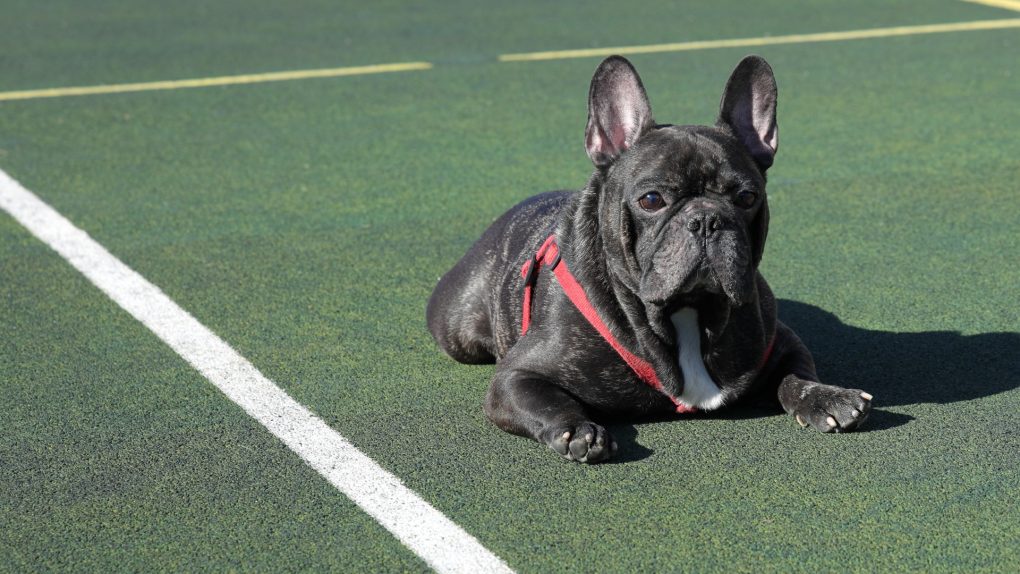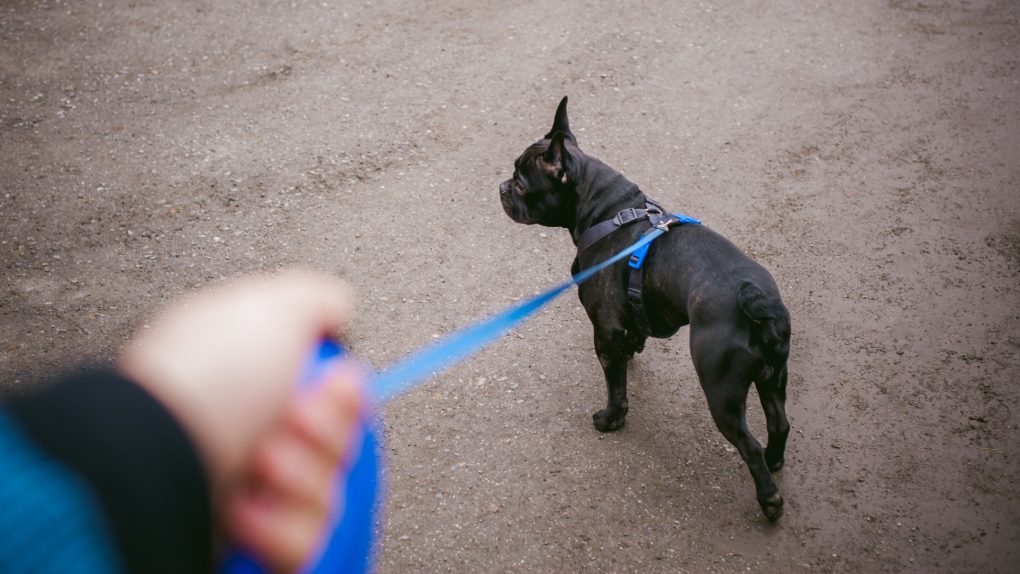French Bulldog: A Comprehensive Guide to Breed Characteristics and Care
French Bulldogs are renowned for their distinctive appearance, including their wrinkled faces and bat-like ears. They are a small breed, typically weighing 16-28 pounds, and are known for their friendly and affectionate personalities. French Bulldogs have become increasingly popular in recent years, ranking as the fourth most popular breed in the United States in 2020.


Despite their popularity, French Bulldogs are prone to certain health issues. A 2013 study found that 72.4% of French Bulldogs under veterinary care in the UK had at least one disorder, with skin allergies and ear infections being the most common. A retrospective study of 343 cases found that French Bulldogs are more likely to develop neurological disorders than other breeds. Therefore, it is important for potential owners of French Bulldogs to be aware of these health concerns and to work closely with a veterinarian to ensure their pet remains healthy.
Table of Contents
History
French Bulldogs, also known as “Frenchies,” are a relatively new breed that originated in France during the 19th century. They were created by crossing small bulldog breeds with local ratters and terriers, the result was a compact, muscular dog with a distinctive “bat ear” shape.
In the late 1800s, French Bulldogs became popular in England, where they were bred further and refined to the breed we know today. They were especially popular among high society, and Queen Victoria was known to be a fan of the breed.
During the Industrial Revolution, many French Bulldogs were brought to the United States by English lace workers. The breed gained popularity in America, and in 1898, the French Bulldog Club of America was established.
French Bulldogs faced challenges during World War I and II despite their popularity. Many dogs were lost during the wars, and breeding programs were affected, but the breed persevered and thrived.
Today, French Bulldogs are one of the most popular breeds in the world, known for their affectionate and playful personalities. The American Kennel Club recognizes them and are a beloved pet for many families.
Breed Standard
The breed standard for French Bulldogs is set by the American Kennel Club (AKC) and the Kennel Club (KC) in the UK. The French Bulldog is a small, muscular dog with a smooth coat and a compact build. According to the AKC standard, the French Bulldog should weigh between 16 and 28 pounds and stand between 11 and 12 inches tall at the shoulder. The KC standard specifies a weight range of 16 to 28 pounds for males and 16 to 24 pounds for females.


The French Bulldog’s head is one of its most distinctive features. It should be large and square, with a short muzzle and a well-defined stop. The ears should be erect and bat-like, and the eyes should be dark and round. The AKC standard specifies that the skin on the skull and forehead “should be supple enough to allow fine wrinkling.” The KC standard states that the head should be “well-proportioned to the body.”
French Bulldogs have short, smooth coats in various colors, including brindle, fawn, and pied. The AKC standard allows for any color except solid black, liver, mouse, black, and tan, and the KC standard allows for any color except solid black, liver, black, and tan.
French Bulldogs are purebred dogs, meaning they have been selectively bred for certain traits over many generations. The breed was developed in the 19th century in England by crossing English Bulldogs with smaller, local terriers. The resulting dog was then bred with French Bulldogs, which were popular with English lace makers then, and was eventually brought to France, where it became very popular.
In conclusion, the breed standard for French Bulldogs is set by the AKC and KC, specifying the dog’s size, appearance, and coat color. French Bulldogs are a purebred dogs developed in England and later became popular in France.
Temperament and Personality
Known for their affectionate and friendly nature, French Bulldogs thrive in a wide variety of living environments, from small apartments to larger homes with yards. They have small size and do not require much exercise, so they make excellent companion dogs.


The French Bulldog is a great watchdog and alert dog. It barks to alert its owners when it senses danger, but it is not known to be aggressive or territorial. As a result, they are generally friendly towards strangers and other animals, making them a good choice for families with children and pets.
However, French Bulldogs can also be stubborn at times. They have a strong will and may require consistent training to prevent them from developing bad habits. Despite their stubbornness, French Bulldogs are highly intelligent and can learn quickly with positive reinforcement training.
One of the most irresistible traits of French Bulldogs is their affectionate nature. They love being near their owners and often follow them around the house, and are known for their playful personalities and often entertain their owners with silly antics.
French Bulldogs make excellent companion dogs due to their friendly and affectionate nature, alertness, and adaptability. While they can be stubborn, they are highly trainable and make great pets for families and individuals alike.
Physical Characteristics
French Bulldogs are a small dog breed with a compact body, large head, and short snout. They have smooth, short coats in various colors, including fawn, brindle, white, and black. The coat is easy to care for and requires minimal grooming.
One of the most distinctive physical characteristics of French Bulldogs is their bat ears. The ears are large and stand upright, giving the dog an alert and curious expression. The breed standard requires the ears to be set high on the head and wide at the base, tapering to a rounded point.


French Bulldogs are also known for their tan markings, typically found on the face, ears, and feet. The tan should be a rich, deep color contrasting with the base coat, and the breed standard allows for a small amount of white on the chest and belly, but excessive white is considered a fault.
In addition to their bat ears and tan markings, French Bulldogs are known for their compact size and large head. The breed standard requires that the dog be no more than 28 pounds and stand no taller than 12 inches at the shoulder. The head should be square and large in proportion to the body, with a short, broad muzzle.
Despite their short snouts, French Bulldogs should not have breathing problems, instead, breeders should select dogs with open nostrils and wide airways to prevent respiratory issues.
Overall, French Bulldogs are a unique and distinctive breed with several physical characteristics that set them apart from other dogs. Their bat ears, tan markings, and compact size make them easily recognizable, while their large head and short snout give them a distinctive and adorable appearance.
Health Concerns
French Bulldogs are known for their adorable looks and affectionate personalities, but they also have some health concerns that potential owners should be aware of. As a brachycephalic breed, French Bulldogs have a short snout and flat face, which can cause breathing difficulties and overheating. Their skin folds can also trap moisture and bacteria, leading to infections.
One of the most common health problems in French Bulldogs is allergies, which can cause skin irritation, itching, and hair loss. Ear infections are also a concern, as their floppy ears can trap moisture and debris, leading to bacterial infections. French Bulldogs are also prone to liver problems, which can cause jaundice and other serious health issues.


Maintaining a healthy weight is important for French Bulldogs, prone to becoming overweight. This can lead to joint problems, including hip dysplasia, which can cause pain and difficulty walking. Dental problems are also a concern, as their small mouths and crowded teeth can make it difficult to keep their teeth clean.
French Bulldogs are particularly susceptible to heatstroke because they are sensitive to high temperatures and can easily become overheated. Keeping them well hydrated and avoiding exercising them during the hottest times of the day is also extremely important.
In summary, French Bulldogs have several health concerns that potential owners should be aware of, including breathing difficulties, skin fold infections, allergies, ear infections, liver problems, joint problems, dental problems, and heatstroke. However, many of these health issues can be prevented or managed with proper care and attention.
Grooming and Exercise
French Bulldogs are known for their short, smooth coat that requires minimal grooming, but they shed moderately year-round and require weekly brushing to remove loose hair and distribute skin oils. A rubber curry brush or a soft-bristle brush is ideal for grooming Frenchies, and they also need to have their nails trimmed regularly, and their ears cleaned to prevent infections.
Regarding exercise, French Bulldogs have low to moderate energy levels and require short walks and playtime each day. They are not the most active breed but must stay fit to avoid obesity and other health problems. A daily 30-minute walk is enough to keep them happy and healthy.


It is important to note that Frenchies are prone to skin issues, and their wrinkles need to be cleaned regularly to prevent infections. A damp cloth or baby wipe can be used to clean the wrinkles. Also, their ears must be cleaned weekly to prevent infections and wax buildup.
Overall, grooming and exercise are essential for the health and well-being of French Bulldogs. They are low-maintenance in grooming, but still require regular attention to keep them healthy and happy.
Training and Socialization
Training and socialization are essential for French Bulldogs to be well-behaved, happy, and healthy pets. French Bulldogs are generally easy to train and respond well to positive reinforcement techniques, such as treats, praise, and playtime. Consistency, patience, and a gentle approach are crucial when training a French Bulldog.
French Bulldogs are family dogs and love to be around people, including children. Early socialization ensures they get along well with children and other pets. Socialization can help prevent behavioral problems such as aggression, shyness, and fear. French Bulldogs are naturally friendly and affectionate, but they may become territorial and protective if they are not socialized properly.
Training should start as early as possible, ideally when the puppy is still with its littermates. Basic obedience training should be taught first, such as sit, stay, come, and heel. House training and crate training should also be started early. French Bulldogs are prone to separation anxiety, and crate training can help them feel secure when left alone.
A French Bulldog is intelligent, but can sometimes be stubborn. Positive reinforcement techniques and short, frequent training sessions are best for them. Harsh training methods or physical punishment are counterproductive and can damage the bond between the owner and the dog.
In summary, French Bulldogs are easy to train and make great family pets. Early socialization and training are essential to ensure they are well-behaved and happy. Consistency, patience, and positive reinforcement techniques are crucial when training a French Bulldog.
Finding a French Bulldog
There are several things you should consider when looking for a French Bulldog to ensure you are getting a healthy and well-bred dog. Here are some tips to assist you:
Look for a Reputable Breeder
When looking for a French Bulldog, you should first look for a reputable breeder. You will be able to find out about the dog’s health, temperament, and history from a reputable breeder. Any questions you may have about the breed and the dog will also be answered by them.
Check with the French Bull Dog Club of America
The French Bull Dog Club of America is a great resource for finding reputable breeders. They have a breeder referral program to help you find a breeder in your area. They also have information about the breed, including health issues and breed standards.
Consider Adopting a French Bulldog
Another option for finding a French Bulldog is to adopt one from a rescue organization. Many French Bulldog rescue organizations in the United States, Australia, and the United Kingdom rescue and rehome French Bulldogs. Adopting a dog is a great way to give a dog a second chance at a happy life.


Be Careful of Puppy Mills and Backyard Breeders
When looking for a French Bulldog, it is important to be careful of puppy mills and backyard breeders. These breeders often prioritize profit over the health and well-being of the dogs. They may not provide proper care for the dogs or have the knowledge or experience to breed healthy dogs.
Consider the Location
When finding a French Bulldog, it is important to consider the breeder’s or rescue organization’s location. If possible, it is best to find a breeder or rescue organization close to you, so that you can visit the dog and see its living conditions.
In conclusion, finding a French Bulldog requires careful consideration and research. By looking for a reputable breeder or rescue organization, and being careful of puppy mills and backyard breeders, you can find a healthy and happy French Bulldog to bring into your home.
Conclusion
French Bulldogs are a unique breed with both positive and negative traits. They are known for their affectionate and friendly nature, making them great family pets. However, their brachycephalic skull structure can lead to health issues such as respiratory problems, hip dysplasia, and spinal issues.
French Bulldogs also tend to develop certain breed-specific conditions such as granulomatous colitis and thoracolumbar intervertebral disc extrusion. Studies have shown that French Bulldogs are predisposed to humeral condylar fractures and brachycephalic airway syndrome.
French Bulldogs remain a popular breed despite these potential health issues due to their charming personalities and unique physical features. Therefore, it is important for potential owners to be aware of the potential health issues associated with the breed and to only purchase from reputable breeders who prioritize the health and well-being of their dogs.
